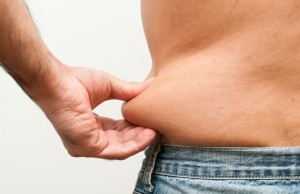The duodenal switch procedure (DS or BPD-DS) accomplishes weight loss by restricting the amount of food that can be eaten (via reduction of the stomach volume) and restricting the number of calories absorbed by the body (intestinal bypass). Ultimately, this surgical weight loss procedure is best reserved for super morbidly obese patients with very high BMIs or severe metabolic syndrome. While this procedure results in the greatest weight loss, it also comes with significant risks.
Out of all the weight loss surgeries on the market, it is one of the most complex and technically challenging surgeries available. This is primarily due to the altering of a patient’s metabolism, concerns of malabsorptive long-term effects, and the necessary extensive post-operative follow-up.
The Bariatric Surgery Center of Excellence does not offer this procedure, however we do offer the gastric bypass or sleeve gastrectomy option, which both provide very comparable results. Due to the complexity of the procedure and the associated complications, it is performed on an inpatient basis at Cedars-Sinai. However, we want to provide patients with as much information as possible for all bariatric surgery options.
How Duodenal Switch Works
The goal of the duodenal switch procedure is both restriction and malabsorption. During the restrictive part of the procedure, the patient’s stomach volume is reduced. In comparison to a sleeve gastrectomy, duodenal switch surgery leaves a larger portion of the stomach intact, including the pyloric valve, which regulates the release of stomach contents into the small intestine. A small part of the duodenum is also preserved to help breakdown food and regulate the rate of emptying.
Malabsorption is achieved during the intestinal bypass portion of the duodenal switch operation. The intestines are divided and significantly rearranged to separate food from the digestive juices. The food and digestive juices interact only in the last 18 to 24 inches of the intestine, allowing for malabsorption, thus minimizing the calories that are absorbed. It is important to note that the intestinal bypass part of the procedure is very extensive and as a result patients develop significant malabsorption, leading to frequent bowel movements, possible body odors, and severe malnutrition if a supplement regimen is not maintained. Due to these factors, duodenal switch surgery is stricter and more extensive than gastric bypass.
Duodenal Switch Follow-Up Care
Most of the weight loss with the duodenal switch occurs during the first 12 to 18 months after surgery. Based on patient averages, you can expect to lose about 70 to 80 percent of your current excess weight.
Due to malabsorption and the possibility of nutritional deficiencies, you will need to take nutritional supplements, including vitamin A, vitamin D and calcium, daily for the rest of your life. Some doctors may also recommend additional supplements of potassium and iron. Lifelong nutritional follow-up is critical after duodenal switch or patients may face severe consequences.
Advantages of Duodenal Switch
- Greatest weight loss of all weight loss procedures
- Highest resolution of diabetes, hypertension and hyperlipidemia.
- Less dumping syndrome due to preservation of the stomach’s “pyloric valve”
- Dramatic reduction in hunger and appetite due to the removal of the portion of the stomach, which produces GHRELIN (hunger hormone)
- Option for patients with a high BMI or who are super morbidly obesee
Risks of Duodenal Switch
- Greater chance of chronic diarrhea, foul smelling stools and gas.
- Significant malabsorption can lead to anemia, protein deficiency, vitamin deficiency, metabolic bone disease (Osteoporosis) in up to 10%-15% of patients and other serious metabolic derangements.
Is the Duodenal Switch Procedure Right For You?
The duodenal switch may be effective for people with very high BMIs. This complex surgery does have more complications and may not be the right choice for certain individuals. It is important to talk to a surgeon to determine if the duodenal switch is right for you.
Want to Know All of Your Weight Loss Surgery Options
Our highly trained bariatric surgeons, at the Bariatric Surgery Center of Excellence, can walk you through your weight loss options. To schedule a consultation, please contact our Los Angeles office at (888) 391-0182.
Next, read about the Gastric Bypass.


